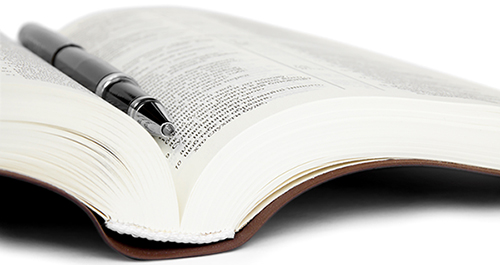
Godefridus Udemans
Article 9 of the Apostles’ Creed states: “I believe one holy catholic Christian church: the communion of saints.” The first treasure of the church is the bond that believers have with one another. This communion of saints—constituted of all true believers who are justified in Christ by the Spirit (Rom. 12:13; 1 Cor. 1:2; 6:11)—is twofold. First, it is the common right that we have to Christ and His gifts (1 John 1:3). Second, it is a calling to use our spiritual and temporal gifts among fellow believers (1 Cor. 12:13; Phil. 2:1–2).
This community is one, that is, though it has many parts and members, it is but one body (1 Cor. 12:12). This unity consists, first, of the unity of faith, and second, of the unity of the Spirit. Therefore, we are told to endeavor to “keep the unity of the Spirit in the bond of peace” (Eph. 4:3–6). The foundation for this unity is knowing Jesus Christ, the Head of the body, who joins all the parts of the body to one another (Col. 3:14–15).
This community is holy for three reasons. First, the church is separate from the unbelieving and godless world (Acts 2:40; 2 Cor. 6:17; 1 Peter 2:9). Second, the church is holy because the perfect holiness of Christ has been imputed to her (John 17:19; 1 Cor. 1:30). Third, the church strives after greater holiness because she has been cleansed by the washing of the Word (1 Peter 1:15).
This community is catholic, or universal. It consists of those at every place who call upon the name of Christ (1 Cor. 1:2; cf. Titus 1:4; 2 Peter 1:1). This community has existed from the beginning of the world and will remain forever.
This community is Christian, called after Christ her Bridegroom (John 3:29). Just as a wife takes the name of her husband (Gen. 2:23), so the church takes the name of Christ.
This community is called the church, the assembly of all believers (2 Peter 1:1). This church is sometimes called militant, composed of all believers on earth; sometimes triumphant, consisting of those saints already in glory[…].
Regarding this communion of saints, the individual believer must examine himself in several matters. First, he must ask whether he truly loves the brotherhood, the assembly and fellowship of believers. Belonging to the body, the believer should have a particular affection and fondness for all other members of the family (1 John 3:14). Therefore, the believer does not forsake the assembly (Heb. 10:25), whether in the public assembly of worship (Ps. 27:4) or in everyday association with believers (Ps. 16:3; Acts 2:46).
Second, the believer must ask whether he wholeheartedly strives after holiness. If he is a true member of the church and is sanctified by the blood of Christ, this should be proven by life conduct (1 Peter 1:15; Heb. 12:14; cf. Acts 8:21).
Third, he must examine himself to see whether he loves Christ with all his heart. Two marks prove this love: obedience (John 14:21) and longing for Christ (Rev. 22:17).
Fourth, the believer must use his talents, both his spiritual and temporal gifts, with a willing heart for the benefit of fellow believers. From this use of gifts on the part of each believer, the whole body is fitly joined together (Eph. 4:16) as each member performs his proper function without envy or spite (1 Cor. 12:16–22). In short, if the believer is a member of the body, he should do nothing through strife and vainglory, but in lowliness of mind (Phil. 2:3).
Godefridus Udemans (1581–1649) was a well-known Dutch Further Reformation pastor and theologian from the province of Zeeland, The Netherlands. This article is adapted from Godefridus Udemans, The Practice of Faith, Hope, and Love, chap. 13.
Published by The Banner of Sovereign Grace Truth, used with permission.
